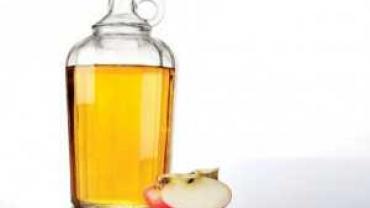
Apple cider vinegar is one of the go-to staples in traditional folk remedies and it's no secret that salads of bitter greens tossed in a vinaigrette make a delicious start to a meal. The acidic vinegar acts as an adjunct to the body's stomach acid boosting its digestive fire and aiding in the efficient breakdown of food. But this unassuming bottle in the kitchen cabinet holds an even more promising role for good health as an aid for blood glucose management. Considering the array of serious complications that are associated with hyperglycemia including diabetes obesity heart disease and metabolic syndrome healthcare practitioners and their patients can always use another tool in their arsenals.
Numerous studies have shown vinegar to be a promising moderator of post-prandial blood glucose levels in healthy people and diabetics alike (both type-1 and type-2). However its effects seem to differ depending on the type of carbohydrate ingested.
One study involving type-2 diabetics (non-insulin dependent using diet or metformin alone for disease management) demonstrated that 20g of wine vinegar (6% acidity) reduced post-prandial glucose after a high-glycemic meal but far less so after an isocaloric low-glycemic meal containing the same total amount of carbohydrates. The high GI meal consisted of instant mashed potatoes and skim milk while the low GI meal was comprised of whole-grain bread lettuce and cheese. It's possible the attenuated effect seen with the low GI meal was simply the result of the meal provoking less of a glucose response in the first place.
Related to the glycemic index of a meal another factor which may influence the effect of vinegar on post-prandial glucose (PPG) is the composition of the carbohydrates. A study looking at the effect of vinegar on PPG divided subjects into four randomized crossover intervention groups in which some subjects consumed a mix of simple and complex carbs while others consumed only simple sugars in the form of a dextrose solution. Three of the four study arms included healthy adults while the fourth included type-2 diabetics (not on insulin). The study used both apple cider and raspberry vinegars helping to establish that the glucose-moderating effects were not limited to apple cider vinegar the one most commonly used in similar studies. Compared to placebo 10g of vinegar (5% acidity) reduced PPG by 23-28% in healthy non-diabetic subjects consuming the starch and juice. In the diabetic subjects the vinegar treatment resulted in a 13-17% reduction in PPG compared to place be less than for the healthy subjects but still potentially clinically significant given the severe consequences of chronic hyperglycemia.
How did the study authors create a placebo for vinegar? Good question. The vinegar preparation was diluted with water to 40g sweetened with 1tsp saccharine and colored with one drop of food coloring while the placebo lacked the vinegar. According to the authors The intense sweetness of the test drinks in association with the bright red blue or green color of the drink fairly concealed the presence of vinegar.
In the arm of the study involving the dextrose solution vinegar had no effect on reducing PPG at any time which suggests the glucose-lowering properties of vinegar relate to a delayed gastric emptying and/or a slowing of starch digestion. This likely explains why a study testing the effects of vinegar on type-2 diabetics following an oral glucose tolerance test yielded nothing positive for vinegar. Subjects ingested a 75g glucose beverage with or without 25g white vinegar (4% acidity) and there was no significant difference in the test results. Studies on human cell lines in vitro have shown that vinegar decreases the activity of multiple disaccharidases (sucrase maltase trehalase and lactase) which could certainly affect PPG. Vinegar seems to be effective only in the presence of complex carbs which require more digestion than simple sugars.
Another factor in regard to using vinegar as a blood glucose regulating adjunct is timing. Vinegar ingested five hours prior to a carbohydrate-containing meal had no notable effect on PPG compared to placebo while the same amount of vinegar consumed along with the test meal resulted in a 19% lowering of PPG. Yet again we have evidence supporting the wisdom of traditional cuisines that employ vinegar-based condiments such as marinades dressings and pickled vegetables.
Vinegar seems to be a useful addition to a diet focused on blood glucose management. However one word of caution: in type 1 diabetics and patients with gastroparesis the effects of vinegar on reducing gastric emptying rate may result in lower than normal PPG potentially leading to hypoglycemic episodes. Vinegar is effective in type-1 diabetics but it may be so effective that monitoring of PPG should be even more diligent than usual and pre-meal insulin dosing may need to be adjusted.
Consider vinegar an inexpensive easily accessible and tasty addition to aid in patients blood glucose management strategies.
For Related Resource Material Listen to our